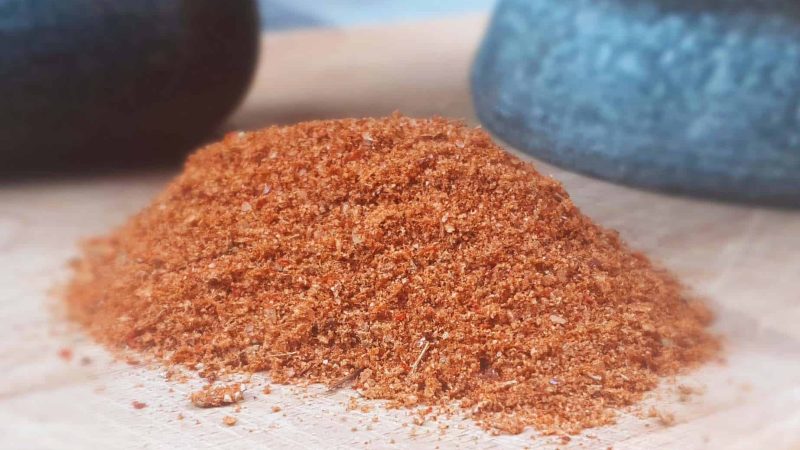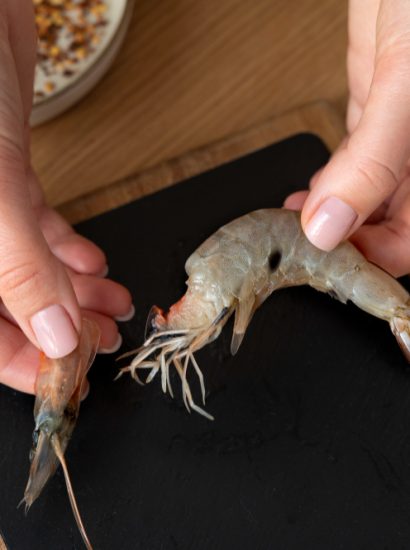Portuguese cuisine is renowned for its bold flavours and aromatic spices, with piri seasoning standing out as a staple in many dishes. From its origins to its culinary uses and health benefits, this article delves into everything you need to know about piri seasoning.
Introduction to Piri Seasoning
Piri seasoning, also known as piripiri or periperi seasoning, originates from Portuguese Speaking regions, notably Portugal and parts of Africa. It is renowned for its vibrant red colour and spicy flavour profile, making it a favourite among spice enthusiasts and food lovers alike.
Origins of Piri Seasoning
Piri seasoning traces its roots to Portuguese exploration and colonisation of Africa, particularly Mozambique and Angola. The name “piripiri” itself is derived from the Swahili word for “pepper,” reflecting its African influence. Portuguese sailors and traders brought back chili peppers from Africa, which were then integrated into local cuisine, giving rise to piri seasoning.
Ingredients That Make Up Piri Seasoning
The key ingredients in piri seasoning typically include:
- Chili Peppers: Varieties such as African bird’s eye chili (piripiri chili) are commonly used.
- Garlic: Adds depth and pungency to the seasoning.
- Herbs: Often includes herbs like oregano, parsley, and sometimes cilantro.
- Vinegar: Provides acidity and helps preserve the seasoning.
- Salt: Balances the flavours and enhances the spiciness.
Flavor Profile of Piri Seasoning
Piri seasoning offers a robust flavour profile characterised by:
- Spiciness: Depending on the variety and amount used, piri seasoning ranges from mildly spicy to very hot.
- Citrusy Notes: Some versions include lemon or vinegar, adding a tangy, citrusy undertone.
-
Herbal Aromas: Oregano and parsley contribute herbal notes that complement the heat of the chili peppers.
Culinary Uses of Piri Seasoning
In Portuguese cuisine, piri seasoning is incredibly versatile and used in various ways:
- Marinades: It is commonly used to marinate meats such as chicken and seafood before grilling or roasting.
- Sauces and Condiments: Piri sauce, made from the seasoning, vinegar, and olive oil, is a popular condiment drizzled over dishes or used as a dip.
- Seasoning: Sprinkled on roasted vegetables, potatoes, or added to stews for an added kick of flavor.
- Flavor Enhancer: Used sparingly to spice up soups, rice dishes, and even pizzas.
Health Benefits of Piri Seasoning
Beyond its culinary appeal, piri seasoning offers several health benefits:
- Capsaicin Content: Chili peppers in piri seasoning contain capsaicin, known for its antioxidant and antiinflammatory properties.
- Vitamin C: Chili peppers are rich in vitamin C, which supports immune function and collagen production.
- Metabolism Boost: Spicy foods like piri seasoning can temporarily increase metabolism due to capsaicin’s thermogenic properties.
Popular Portuguese Dishes Featuring Piri Seasoning
Some iconic Portuguese dishes that prominently feature piri seasoning include:
- Frango PiriPiri: Grilled or roasted chicken marinated in piri seasoning, often served with fries or rice.
- PiriPiri Shrimp: Succulent shrimp marinated in piri sauce and grilled to perfection.
- PiriPiri Sauce: A versatile sauce used as a marinade or condiment for various dishes.
Piri Seasoning Around the World
Due to its bold flavours and versatility, piri seasoning has gained popularity beyond Portugal and Africa:
- Global Fusion Cuisine: Chefs worldwide incorporate piri seasoning into fusion dishes, blending Portuguese flavours with local ingredients.
- Commercial Products: Piri seasoning is now commercially available in spice blends, sauces, and even flavoured snacks, catering to global tastes.
How to Make Your Own Piri Seasoning
Creating homemade piri seasoning allows you to customise the heat level and flavors:
- Ingredients: Gather dried piri piri chilies, garlic powder, dried herbs (like oregano), salt, and vinegar.
- Method: Grind chilies and herbs, mix with garlic powder and salt, then add vinegar to form a paste or dry blend.
Where to Buy Piri Seasoning
Piri seasoning is available in various forms:
- Specialty Stores: Ethnic grocery stores often carry authentic piri seasoning blends.
- Online Retailers: Websites specialising in spices and international ingredients offer a wide selection of piri seasoning products.
- DIY Kits: Some retailers offer DIY kits for making piri seasoning at home, complete with all necessary ingredients.
Conclusion
Piri seasoning stands as a testament to the rich culinary heritage of Portugal and its influence across continents. Whether used to spice up grilled meats, enhance sauces, or add a kick to everyday dishes, its versatility and bold flavours make it a favourite in kitchens worldwide.
FAQs
1. What does piri seasoning taste like?
Piri seasoning has a spicy, tangy flavour with herbal undertones, perfect for adding heat and depth to dishes.
2. Is piri seasoning very spicy?
It can be quite spicy, depending on the amount of chili peppers used. Adjust the quantity to suit your taste.
3. Can piri seasoning be used for vegetarian dishes?
Absolutely! Piri seasoning adds a burst of flavour to vegetarian dishes like roasted vegetables and grain bowls.
4. How long does piri seasoning last?
When stored in a cool, dry place, piri seasoning can maintain its flavour for up to a year.
5. Are there variations of piri seasoning?
Yes, variations exist with different levels of heat and additional ingredients like citrus or extra herbs.
Also read: BOB MENENDEZ: 10 SURPRISING FACTS ABOUT HIS EARLY LIFE









